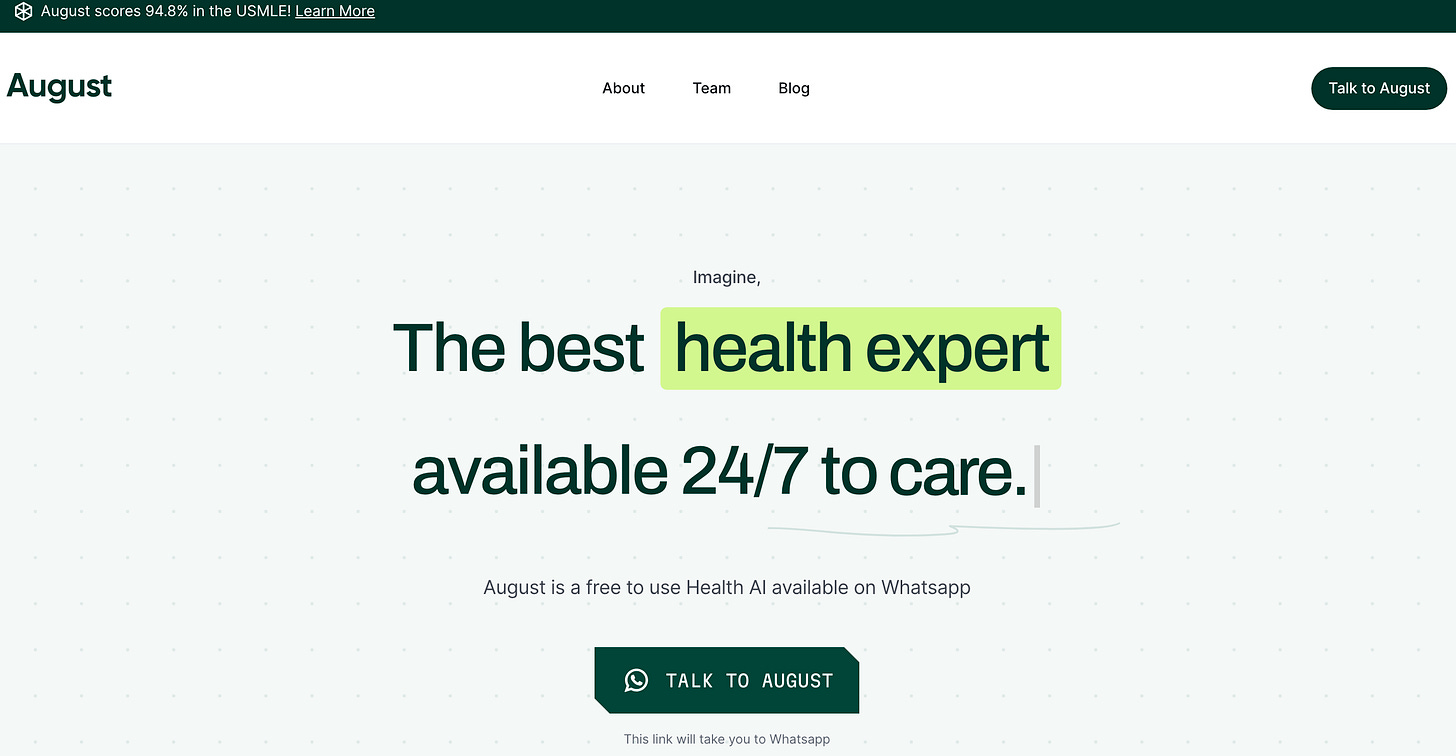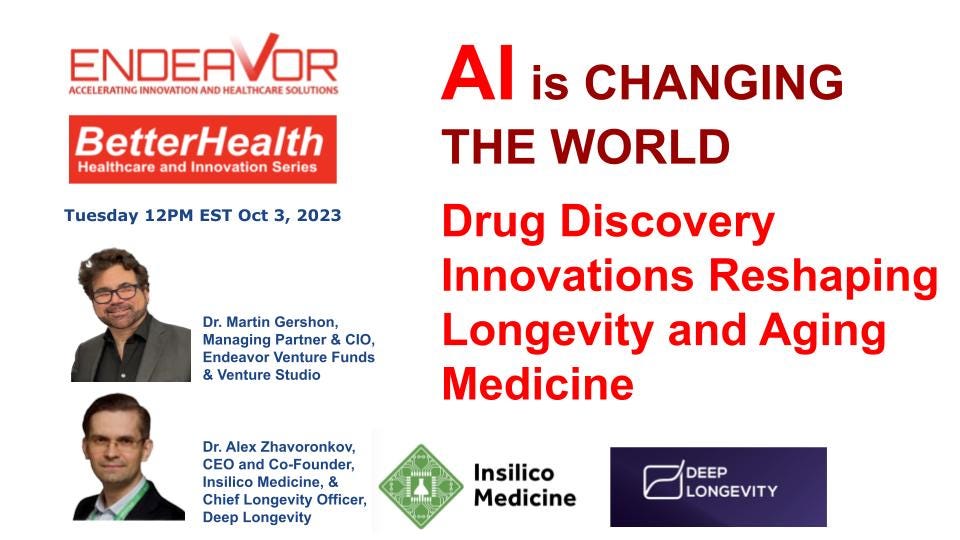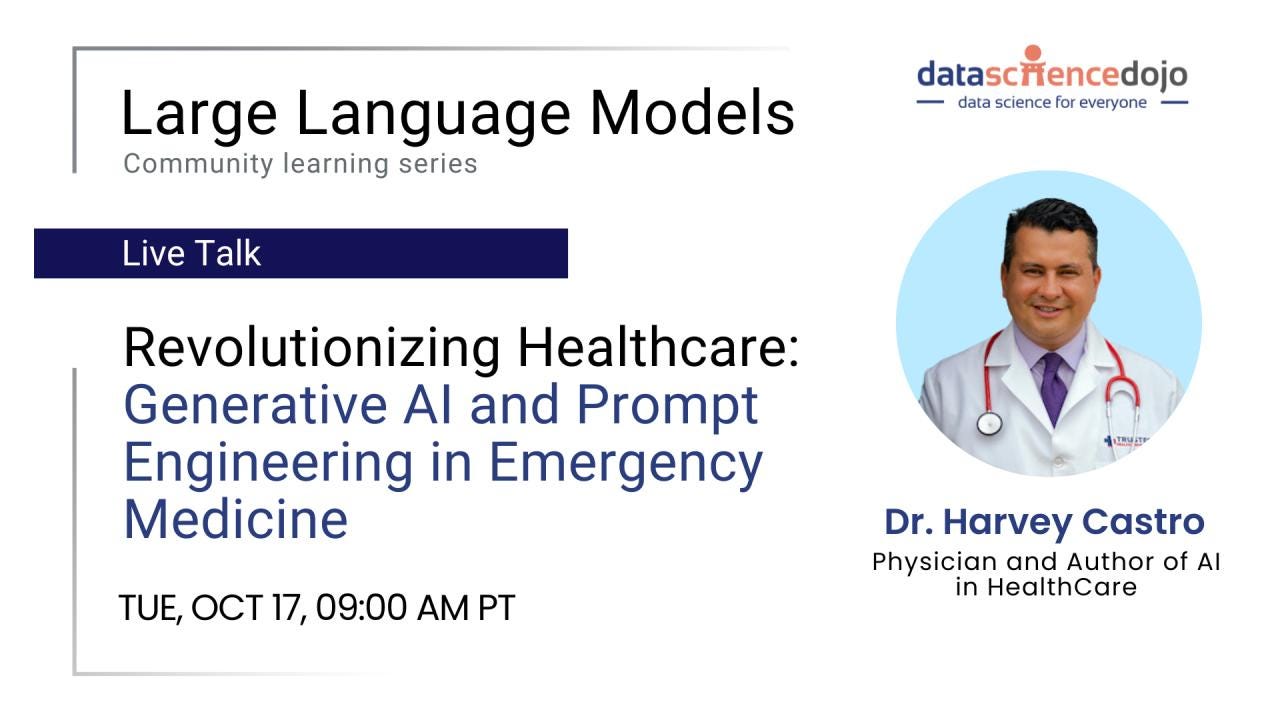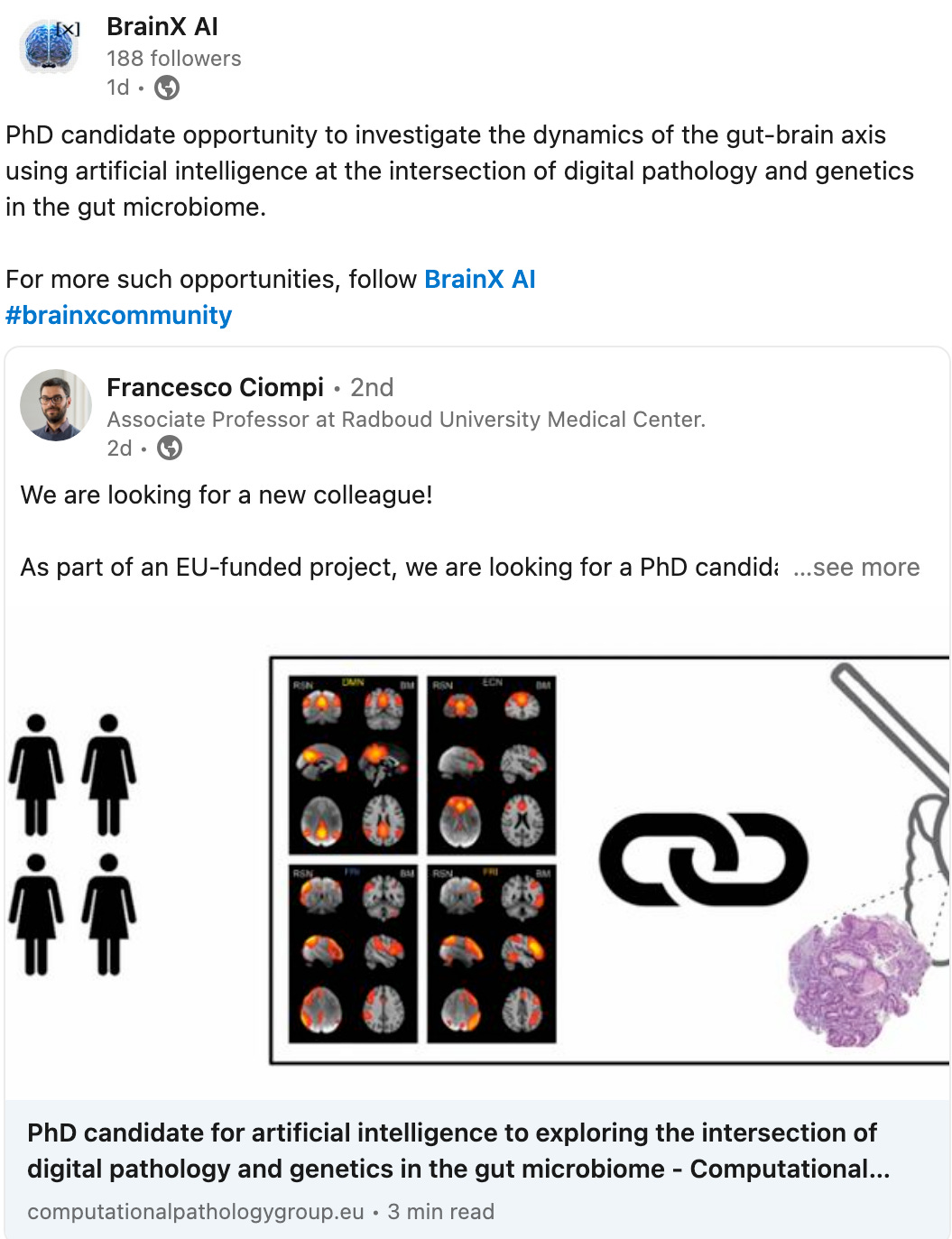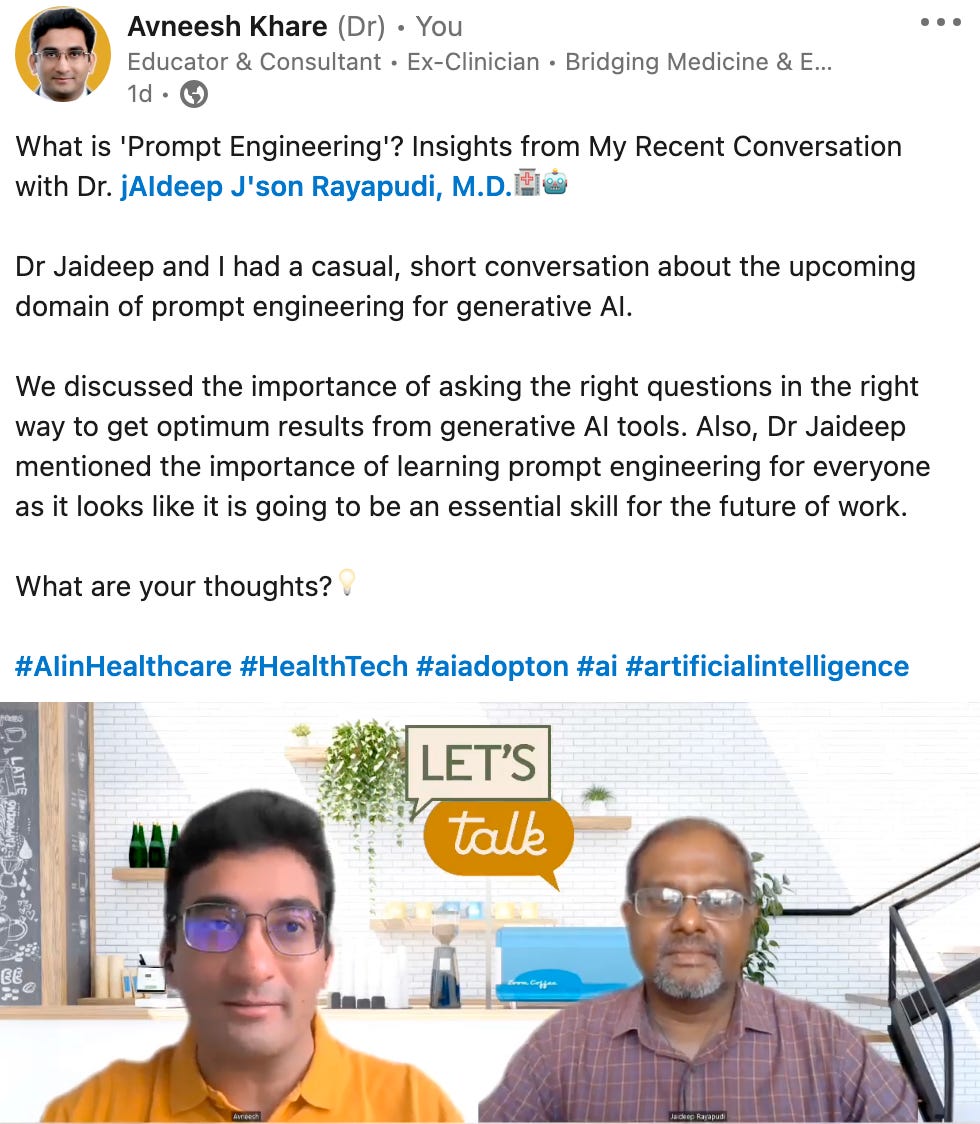🚀 AI Transformations in Medicine: Predicting Drug Tastes, Revolutionizing Medical Training, and Accelerating Patient Care 🏥💡
Weekly Updates on AI in Medicine 🤖🩺🚀
“Sometimes it seems as though each new step towards AI, rather than producing something which everyone agrees is real intelligence, merely reveals what real intelligence is not.”
― Douglas Hofstadter, Gödel, Escher, Bach: An Eternal Golden Braid
Dear Med AI Enthusiast,
Welcome to this edition of The ‘Med AI’ Capsule Weekly Newsletter! ⚕️🤖💊 I'm really excited to have you with me as we dive into the fascinating world of Medical AI.
In this newsletter, I'll be your guide, taking you through the latest news updates and thought-provoking ideas in the ever-changing field of artificial intelligence in medicine.
Whether you're an interested medical professional, a tech enthusiast, or just curious about the future of medicine, The ‘Med AI’ Capsule is here to lead the way and show you the exciting possibilities and cautionary areas for AI in medicine.
So, get ready for an adventure, and let's explore this thrilling journey together! 🚀
In today’s capsule:
5 Med AI News Updates
3 Med AI Research Updates
2 Med AI Events
1 Med AI Work Opportunity
Social Post of the Week
Reading Time: 5-7 minutes
Med AI News Updates 📰
👅 AI Predicts Drug Taste for Better Medicines 🤖
Why Important: Poor taste in medicines, especially for children, hinders adherence and can lead to treatment failure. AI is being used to predict and improve drug taste, speeding up development and enhancing patient compliance.
Caution: While AI can predict taste, real-world patient preferences may vary, and further testing is required for validation.
📱 AI-Powered App Enhances Medical Student Training 🏥
Why Important: The app, OSCE-GPT, enables medical students to practice diagnostic and communication skills with virtual patients, improving their readiness for real-life scenarios. It offers more extensive training than traditional methods and reduces the need for costly standardized patients.
Caution: The app is still in development, and practical medical experience remains essential.
🧠 AI-Powered Stroke Software Speeds Treatment ⏱️
Why Important: A recent trial using AI to detect large vessel occlusion (LVO) in stroke patients significantly reduced treatment times. Real-time alerts to clinicians enabled quicker interventions, potentially saving lives and improving patient outcomes.
Caution: The role of AI should complement, not replace, medical expertise in stroke care.
👩⚕️ AI Model Enhances Breast Cancer Surgery Accuracy 🤖
Why Important: An AI model predicts if all cancerous tissue is removed during breast cancer surgery, reducing the need for follow-up surgeries and improving patient outcomes. It matches or surpasses human accuracy in detecting cancer margins, particularly beneficial for patients with high breast density.
Caution: The AI model is in early stages and requires further validation before clinical use. Surgeons should use AI as a supportive tool alongside their expertise.
🌐 Google Fuels AI-Enabled Digital Health Innovations 💰
Why Important: Google supports 15 AI projects, including 8 digital health initiatives, with $3 million funding, technical assistance, and Google Cloud credits. These projects aim to enhance healthcare accessibility, diagnostics, and patient care globally.
Caution: While AI advances healthcare, data privacy and ethical considerations must be carefully managed. The projects should prioritize patient well-being and safety in their AI applications.
Med AI Industry Showcase 📢
August is an AI chatbot focused on health that uses smart technology to understand questions and provide helpful information.
It's not a doctor, but it's very knowledgeable, scoring high on a medical test.
August is also designed to be reassuring and comforting, and anyone can chat with it on WhatsApp 24/7 for free.
It even accepts lab reports, and analyzes them, explaining the results and offering health tips.
Privacy is protected with encrypted conversations, and personal health data won't be shared with anyone else.
If you want your MED AI company/ startup/ product to be featured here, please feel free to reach out to me at avneeshkhareonline@gmail.com.
Med AI Research Updates 🔬
📊 They analyzed genetic data, identifying 23 genes linked to myopia. Four genes (NR1D1, PPP1R18, PGBD2, PPP1R3D) were highly effective as diagnostic biomarkers.
⚠️ While promising, further research is needed to understand how these biomarkers affect myopia and their potential use in treatment.
📊 The best model, Linear Discriminant Analysis (LDA), had an impressive accuracy of 84.03%. Important risk factors for pancreatic cancer included glucose levels, glycated hemoglobin, hyperlipidemia, and specific medications.
While promising, this AI model needs further testing to ensure it works well in real hospitals. But it could help find cancer sooner in diabetic patients, improving their chances of survival. 🩺📈🔍
The AI achieved high accuracy, making it a valuable tool for in vitro fertilization and improving the selection of viable oocytes and embryos. It could potentially enhance the success rates of in vitro fertilization.
⚠️ While this AI system shows promise, it should be rigorously tested in real clinical settings to ensure its reliability and safety in assisting fertility treatments. 🤰🤖🔍
Med AI Events 🧑💻
Med AI Work Opportunity 💼
Social Post of the Week 📲
Let’s wrap it up with a fun fact!
In October 2017, Sophia (an AI Robot) became the first robot to receive citizenship of any country, after being awarded Saudi Arabian Citizenship.
Stay tuned for our upcoming editions as we explore the latest breakthroughs and dive deep into AI's transformative power, shaping a healthier future.
Warm regards,
P.S.: If you're a medical professional intrigued by artificial intelligence, but not sure where to start, feel free to reach out to me for personalised guidance HERE.
You can also check out my CPD-accredited Med AI course on the Bionabu (UK) platform and join our vibrant Med AI WhatsApp Community.
Follow me on LinkedIn and Twitter
Voluntary Disclosure: Generative AI tools were employed to help me in making this newsletter better for you.




